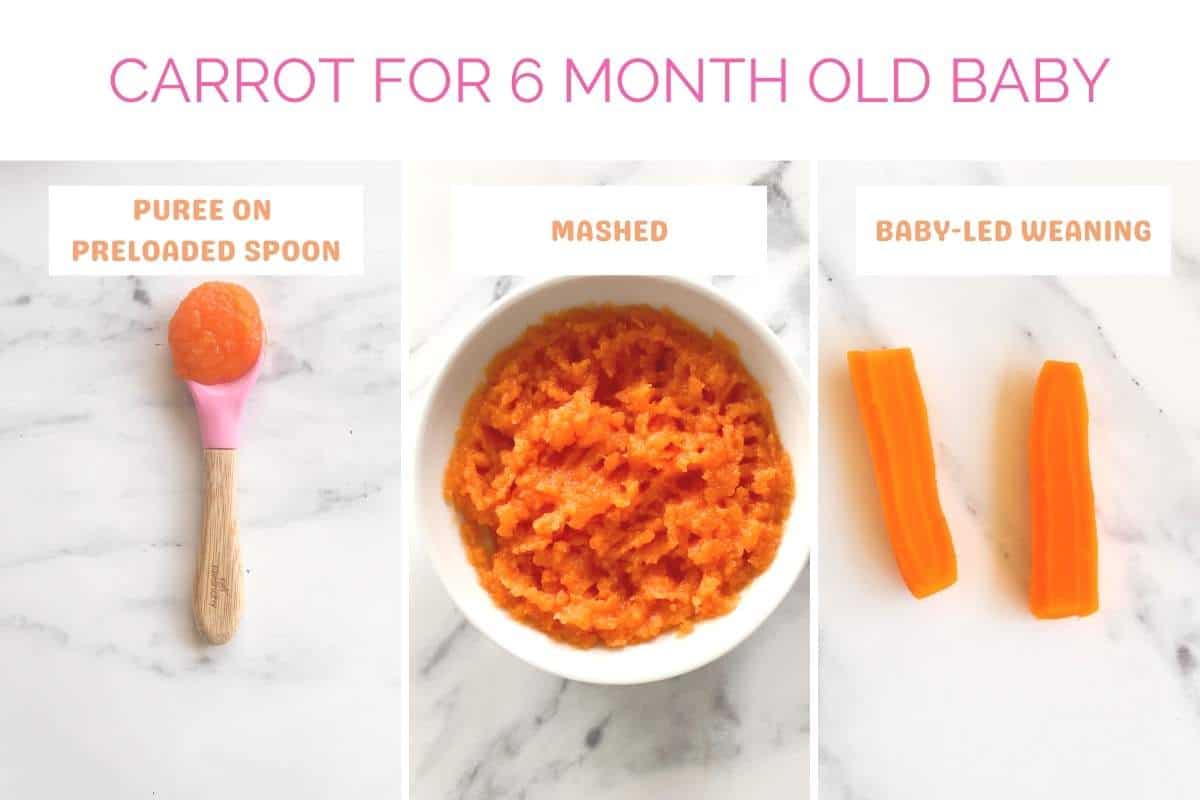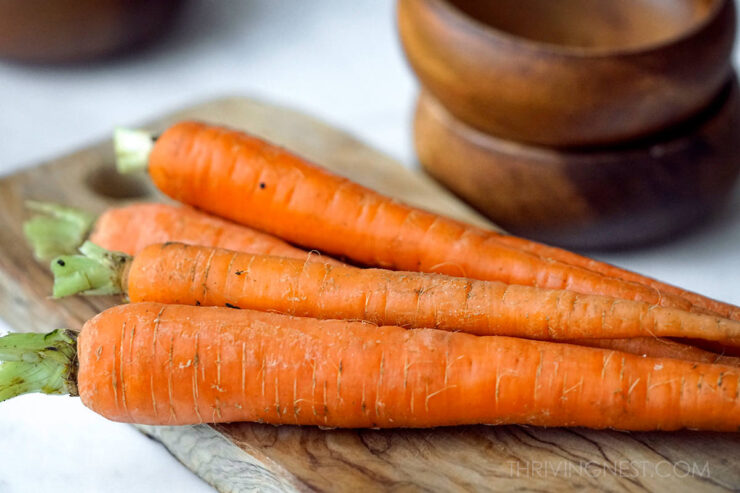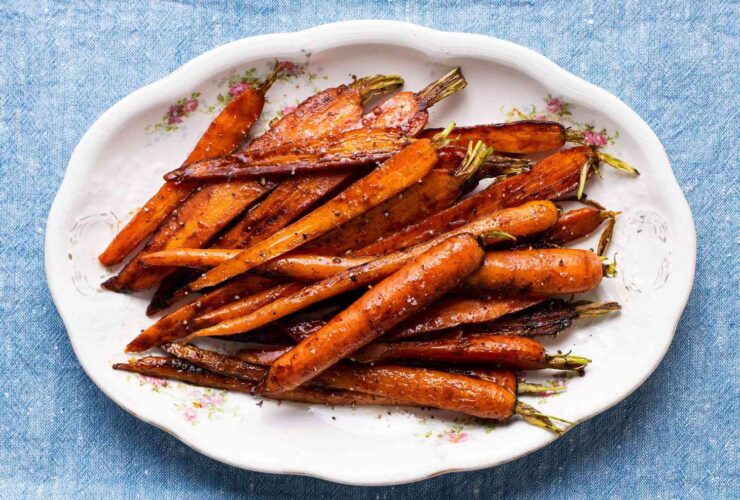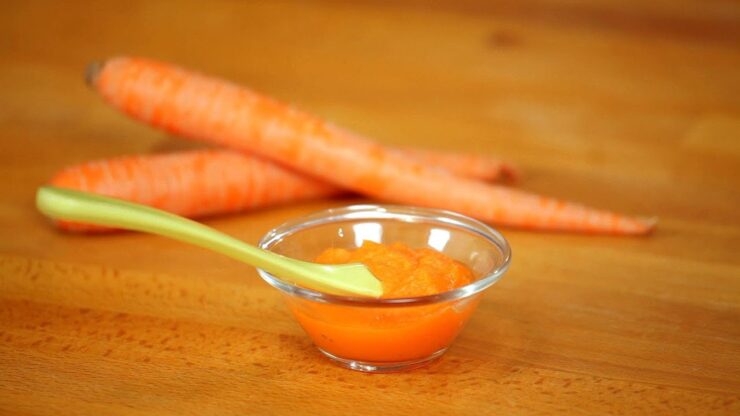Carrots, those vibrant orange sticks of sunshine, aren’t just a delightful snack for adults. They’re nature’s gift to the weaning world, bursting with goodness for our delicate little gourmands. But transforming a root into a baby-friendly feast requires a sprinkle of culinary creativity and a dash of developmental knowledge. So, how do we unlock the carrot’s magic and make it a delicious stepping stone on your baby’s culinary journey?
Introducing your little one to the world of solid foods is a thrilling culinary adventure! But as any parent knows, navigating the jungle of textures and tastes can be daunting. Chief among these early culinary conquests: the mighty carrot.
Packed with vitamins, minerals, and that vibrant orange charm, carrots deserve a starring role in your baby’s journey. But how long do you boil those orange rods to achieve nutrient-rich perfection without ending up with mushy oblivion? Fear not, parents, for this guide will equip you with the knowledge to unlock the secrets of carrot-cooking for your bouncing bundle of joy.
The world is divided into two groups of people: those who love carrots and a group of people who cannot stand them. If you do not want your child to be in the second group of individuals, then it is very important from an early age to create a healthy habit of including this nutritious food in their meals. There are a number of benefits why this vegetable is a nutritional powerhouse, and these are the following:
High on vitamin A

Carrots, brimming with vitamin A, are helping them develop healthy vision and see the world in all its vibrant glory. But that’s not all! Vitamin A is also a superhero in the immune system, boosting their defenses against invaders like coughs, colds, and even ear infections. Think of it as an invisible shield, protecting your little explorer on their adventures.
Rollercoaster for the taste buds
Carrots, with their natural sweetness, can be the bridge between bland mush and flavor fireworks. Their gentle sweetness introduces your little one to the magic of taste, encouraging them to explore new culinary landscapes. Plus, the naturally occurring sugar in carrots is a healthy alternative to added sugars, helping to develop a preference for naturally sweet foods.
Full on fibers

Think of fiber as the tiny gardeners in your child’s tummy, keeping things tidy and running smoothly. Carrots are loaded with this wonder-worker, promoting healthy digestion and preventing constipation, those unwelcome roadblocks on the journey to happy mealtimes. Plus, fiber keeps your little one feeling full and satisfied.
If you’re not entirely sure how long you should cook carrots before serving them to your baby, here are some tips from experienced moms (and trust me when I say your little one will love this food).
Boil time decoded:
Firstly, remember that boiling times aren’t carved in stone, but rather dance alongside your baby’s development. For babies who are between 4 to 6 months old, those tiny tummies crave smooth textures. Aim for a 15-20-minute simmer, ensuring the carrots are fork-tender and ready for pureeing into velvety goodness.
As your little one gets older, 7 to 9 months, they can handle a bit more bite. 10-15 minutes of bubbling will soften the carrots enough for mashing, offering some textural intrigue to keep those taste buds tantalized. By the time they are a year old, your mini-muncher is on their way to mastering finger foods.
Steam or boil those vibrant orange sticks for a mere 5-8 minutes, leaving them pleasantly firm for tiny hands to grasp and gnaw on. If you want to know the perfect boiling time on any other vegetable, you can find that information here.
Beyond the boil:

Boiling certainly gets the job done, but remember, valuable nutrients can be lost in the cooking water. Here are some pro tips to ensure your little one gets the most out of every carrot:
- Embrace the steamer: Steaming retains more vitamins and minerals than boiling. Fill a pot with an inch of water, place a steamer basket filled with chopped carrots on top, and let the steam work its magic for the recommended time.
- Reserve that cooking water: Don’t discard the nutrient-rich liquid! Use it to thin purees or mix with rice to add a sweet, earthy twist.
- Chop, don’t slice: Smaller pieces cook faster and more evenly, minimizing nutrient loss. Aim for bite-sized chunks for toddlers or a fine dice for little babies just starting out.
- Skip the pre-peeling: Peeling removes valuable vitamins and fiber. Simply wash the carrots thoroughly before chopping to retain their full nutritional bounty.
Flavor fusion:
Let’s face it, plain carrot puree can get, well, plain. Don’t let boredom rule your baby’s taste buds! Experiment with these flavor-boosting techniques:
- Spice it up (gently!): A hint of cinnamon, nutmeg, or even a touch of paprika can add warmth and complexity to purees. Just remember, moderation is key with delicate young taste buds.
- Fruitful friend: Pair carrots with sweet fruits like apple, pear, or mango for a naturally sweet and vibrant puree.
- Herbal magic: Fresh herbs like basil, rosemary, or thyme can add a subtle yet intriguing twist to carrot purees.
Remember, every baby is unique! Some may relish smooth purees, while others may crave chunkier textures. Start with the recommended boiling times and textures, and then tailor them to your little one’s preferences. Pay attention to their cues during mealtime, and feel free to adjust cooking times and textures as they grow and develop.
Remember, carrots are not just any vegetable. It is a vitamin bomb that creates and strengthens immunity, has the power to transform into countless flavors and be prepared in multiple ways. Steamed, mashed, roasted vegetables, or even raw, they adapt to any dish.
Blend them into a smoothie, create stews, or bake carrot-banana muffins for a healthy on-the-go snack. Preparing carrots for baby food isn’t just about filling tummies; it’s about creating joyful culinary memories.
So, embrace the messy moments, the triumphant bites, and the joy of introducing your little one to the vibrant world of healthy eating. With a little practice and these pro tips, you’ll be boiling, steaming, and mashing your way to nutrient-rich, baby food perfection!

